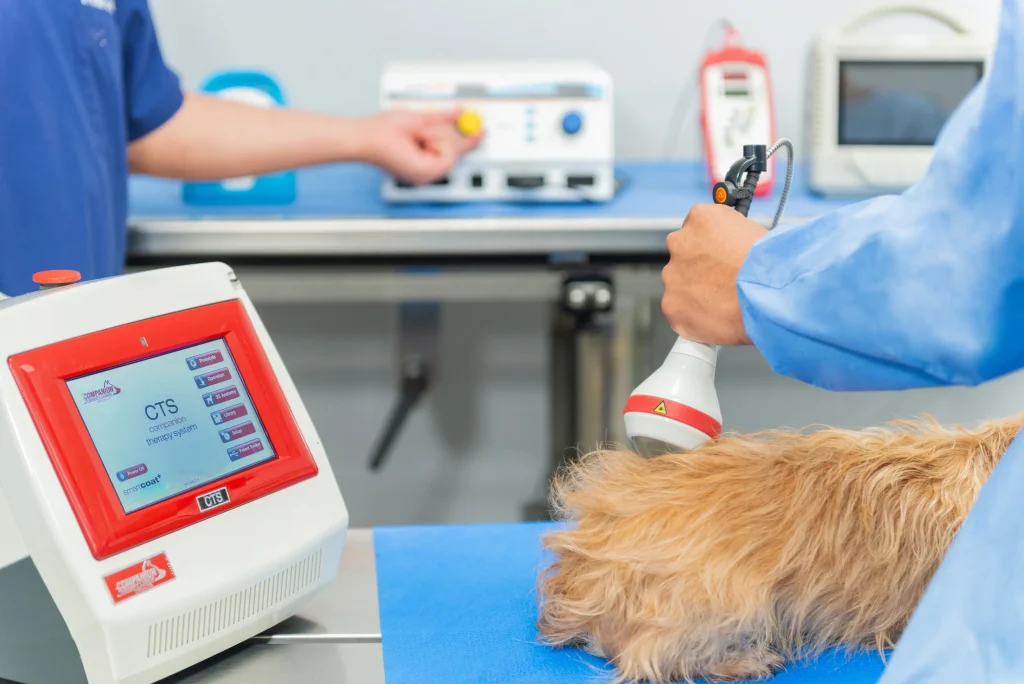Preventive Care: Vaccines and Regular Check-ups for Healthy Pets

The Foundation of Pet Health
The health of your furry companions hinges significantly on the approach you take towards their care. Preventive care is akin to a safety net, designed to catch potential health issues before they escalate into major problems. This proactive approach is not just beneficial but critical, paralleling the efforts humans undertake for their health. Animals deserve the same vigilance to maintain their well-being and quality of life.
Vaccines are an integral part of preventive care, safeguarding your pet against a range of contagious diseases. For instance, vaccinations protect dogs from deadly conditions like parvovirus and distemper, while cats are shielded from feline leukemia and rabies. Each vaccine plays a pivotal role, enabling your pet’s immune system to formulate a robust defense against these potentially life-threatening ailments. Furthermore, a comprehensive vaccination schedule—usually recommended by a veterinarian based on your pet’s age, lifestyle, and health status—ensures optimal protection over their lifetime.
Key Benefits of Preventive Care
- Boosts Immunity: Vaccination equips your pet’s immune system to combat various pathogens, effectively reducing the risk of contracting diseases that could lead to severe health complications.
- Early Detection: By having regular check-ups, veterinarians can identify early signs of conditions like dental disease or obesity, potentially preventing more serious illnesses such as diabetes or heart disease from developing. This can significantly alter your pet’s quality of life through early intervention.
- Longer Lifespan: Studies indicate that pets receiving regular veterinary care have a higher likelihood of living longer, healthier lives. A routine of vaccinations and wellness checks can effectively enhance your pet’s longevity while ensuring they remain active and vibrant, allowing you to enjoy more moments together.
In the United States, each state may have differing vaccination requirements, often influenced by local regulations and prevalent diseases. For pet owners, understanding these variations is crucial. Resources such as the American Veterinary Medical Association (AVMA) provide detailed vaccination guidelines tailored for specific breeds and local environments, ensuring that you remain informed and attentive to your pet’s individual needs.
Investing in preventive care reflects your commitment as a responsible pet owner. It is not merely a financial decision but a dedication to fostering a long, happy, and healthy life for your pet. The bond you share is strengthened through these proactive measures, paving the way for joyous adventures and shared companionship. Therefore, seek out regular veterinary visits and prioritize vaccinations—your pet’s well-being depends on it.
DIVE DEEPER: Click here to learn how social media can save lives

The Importance of Vaccination in Preventive Care
When it comes to your pet’s health, vaccination stands out as one of the most effective tools at our disposal. Vaccines are not just about compliance or routine; they are vital for protecting your beloved companion against diseases that could have devastating consequences. By administering the right vaccines at the appropriate times, you empower your pet’s immune system to fend off infections and illnesses that could endanger their life.
Understanding the vaccination framework can often seem overwhelming, but it is essential for every pet owner. Vaccines can be divided into two primary categories: core vaccines, which are essential for all pets regardless of their environment, and non-core vaccines, which are administered based on lifestyle risks. Core vaccines for dogs often include those against parvovirus, distemper, and rabies, while cats typically receive protection against rhinotracheitis, calicivirus, and panleukopenia. Meanwhile, non-core vaccines might be necessary for pets that spend time in specific environments or regions where certain diseases are more prevalent.
Besides safeguarding against diseases, vaccines can also mitigate the spread of infections within communities. For instance, rabies is a zoonotic disease that can affect not just pets but also humans. Vaccinating pets against rabies is not just a legal requirement in many states; it is an ethical imperative to ensure public health and safety.
Understanding Vaccination Schedules
To ensure that your pet remains protected, adhering to the recommended vaccination schedule is crucial. Most veterinarians will provide individualized vaccination plans based on your pet’s age, health, risk factors, and lifestyle. Typically, younger pets may require a series of vaccinations to build a strong immune foundation, while adult pets may need booster shots. These schedules can vary significantly, based on state regulations, so consulting with your veterinarian is key. Some states might have stricter vaccination laws due to the regional prevalence of specific diseases.
Moreover, pet owners can also enhance their pet’s health through regular check-ups. During these visits, your veterinarian will assess not only vaccination status but will also perform a comprehensive health examination. This process helps uncover unnoticed health issues such as dental problems, obesity, and parasites, which can be major contributors to severe health conditions if left unattended. Regular check-ups simplify early diagnosis and increase the chance of successful interventions, ensuring your pet maintains a high quality of life.
Why Preventive Care Matters
- Protection Against Disease: Vaccinating your pet shields them from common but severe illnesses that could be fatal without intervention.
- Cost-Effectiveness: Preventive care is often more economical than the treatment of advanced health issues. Regular vaccinations and check-ups can avert costly emergency vet visits down the line.
- Peace of Mind: Knowing that your pet is safeguarded against major diseases and is regularly monitored by a veterinarian allows you to enjoy your time together without fear.
In essence, being vigilant about your pet’s vaccinations and scheduling routine check-ups is a mark of responsible ownership. Beyond simply extending your pet’s life, these efforts lay the groundwork for a fulfilling and happy companionship, filled with cherished moments and adventures.
| Category | Description |
|---|---|
| Vaccination | Immunizes pets against deadly diseases, reducing incidence of illness. |
| Regular Check-ups | Identifies health issues early and promotes ongoing wellness maintenance. |
Vaccines are crucial for preventive care, acting as a defense against various infectious diseases. Vaccination not only protects individual pets but also contributes to community health by reducing the spread of illnesses. For instance, diseases such as rabies and parvovirus can be fatal, but vaccination ensures that pets maintain immunity. Furthermore, regular check-ups are equally vital in preventive care. Through comprehensive exams, veterinarians can detect problems early, assess behavioral changes, and recommend dietary improvements. Regular visits allow for timely vaccinations, dental cleanings, and discussions about flea and tick prevention, ultimately enhancing your pet’s overall quality of life. Engaging in these preventive practices not only extends pets’ lifespans but also improves their everyday wellbeing. Adopting a proactive approach through vaccines and regular health assessments can save pet owners from costly emergency treatments later on.
DISCOVER MORE: Click here to dive deeper
The Role of Regular Check-ups in Preventive Care
While vaccinations provide essential protection against specific diseases, regular veterinary check-ups play a crucial role in maintaining your pet’s overall health and wellness. Much like annual physical examinations for humans, these visits serve as a proactive means to spot potential health issues before they escalate into more significant problems. With the average lifespan of pets steadily increasing, it’s more important than ever for owners to prioritize check-ups as a fundamental aspect of preventive care.
During routine examinations, veterinarians conduct thorough assessments that can include listening to your pet’s heart and lungs, checking their weight, and inspecting their skin and coat. They will look for signs of underlying health complications such as heart disease, diabetes, and even early-stage cancers. In fact, many conditions show subtle symptoms that might easily go unnoticed by pet owners, but a veterinarian’s trained eye can catch these early indicators. For instance, sudden weight changes or behavioral shifts can signal health concerns that may require immediate attention.
Critical Elements of a Comprehensive Check-up
A typical veterinary check-up often includes several key components that contribute to a holistic understanding of your pet’s health:
- Physical Examination: The veterinarian evaluates your pet’s overall condition, checking vital signs and physical appearance to detect any abnormalities.
- Parasite Control: Discussing prevention and treatment options for common parasites such as fleas, ticks, and heartworms is vital for your pet’s health. These parasites can lead to serious disease and discomfort.
- Dental Care: Oral health is often overlooked, yet dental disease can be linked to severe health issues. Your vet can assess your pet’s teeth and gums, recommending cleanings or treatments as needed.
- Nutritional Guidance: Proper nutrition is fundamental for a pet’s overall well-being. Vets can provide tailored dietary advice based on your pet’s age, breed, and activity levels.
- Behavioral Assessment: During check-ups, pet owners can discuss any behavioral changes or concerns, opening the door for life-enhancing modifications to your pet’s environment or routine.
Beyond these components, regular check-ups pave the way for open communication between pet owners and veterinarians. Owners can stay informed about new vaccines available, advances in veterinary medicine, and any regional health alerts concerning outbreaks of diseases such as Lyme disease or canine influenza. Moreover, the relationship you build with your vet can deepen over time, allowing for tailored advice and a trusted source of information regarding your pet’s unique needs.
The Cost Benefits of Preventive Care
Investing in preventive care, including vaccines and routine check-ups, can also yield significant financial benefits. As mentioned previously, the costs associated with treating serious health issues often outweigh the expenses of preventive measures. According to a study published by the American Veterinary Medical Association, an estimated 70% of health issues can be averted through regular check-ups and lifestyles designed around preventive care. By addressing minor issues before they snowball into major concerns, you save on emergency visits, lengthy treatments, and potentially life-saving interventions.
Furthermore, many veterinary practices even offer wellness plans that bundle vaccinations, check-ups, and preventive treatments at a reduced rate. These plans not only encourage routine visits but also provide pet owners with financial peace of mind. Such forward-thinking approaches underscore a pet owner’s commitment to their pet’s health and longevity.
In a world where pets are increasingly viewed as family members, prioritizing regular check-ups alongside vaccinations underscores a heartfelt obligation to protect and enhance their quality of life. Embracing these practices ensures your furry friends can share many healthy, happy years with you.
DISCOVER MORE: Click here to learn effective adaptation and training techniques
Conclusion
In summary, preventive care through vaccines and regular veterinary check-ups is vital to ensuring the health and longevity of our beloved pets. Taking proactive measures not only protects against severe illnesses but also fosters a comprehensive understanding of our pet’s overall well-being. With a growing body of evidence highlighting that 70% of health issues can be prevented through these approaches, it becomes increasingly clear that routine visits and timely vaccinations are indispensable aspects of responsible pet ownership.
Engaging in preventive care creates an ongoing dialogue between pet owners and veterinarians, enhancing our ability to recognize subtle changes in our pets’ health and behaviors. Consistent check-ups allow for early detection of potential problems, tailored nutrition plans, and effective parasite control, while also facilitating a strong bond between pets and their caregivers. This means that not only do our furry companions lead healthier lives, but they also enrich our experiences as pet owners.
Moreover, the financial advantages of investing in preventive care cannot be overlooked. By addressing minor health concerns before they escalate, pet owners can save significantly on medical expenses while simultaneously ensuring their pets enjoy a vibrant and energetic life. This is further underscored by the availability of wellness plans that provide accessibility to essential services in a cost-effective manner.
Ultimately, prioritizing vaccines and regular check-ups is more than a practical choice—it’s a commitment to nurturing and safeguarding the well-being of the furry members of our families. Adopting these preventive measures will help ensure that our pets enjoy many happy and healthy years by our sides.



